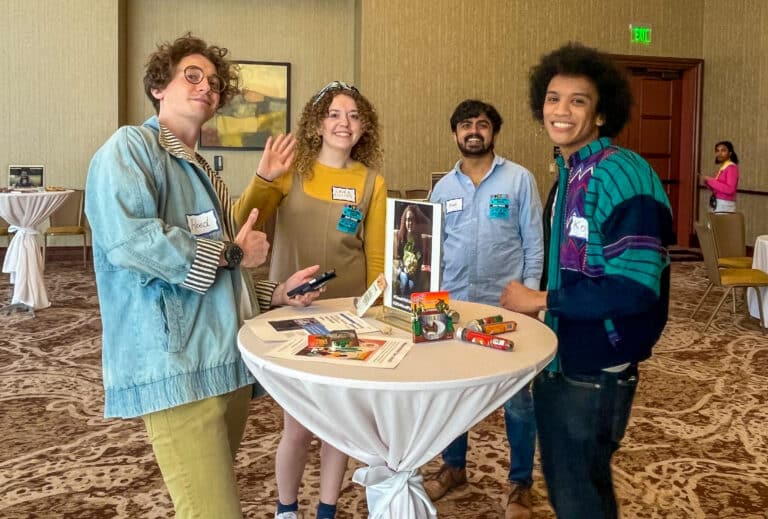Guest post by Kimberly Daniels
In The Future of Learning: Redefining Readiness from the Inside Out, KnowledgeWorks explored how two key drivers of change, the rise of smart machines and the decline of the full-time employee, could reshape work in 2040. Four scenarios illustrate how two critical uncertainties related to how these drivers of change and people’s responses to them could impact readiness for further learning, work and life. The scenarios also illuminate the kinds of supports that could be available to young people and adults for future success.
This blog post is the fourth in a series that examines the readiness attributes demonstrated by eight fictional personas who portray what success could look like. It is designed to get readers thinking about the knowledge, skills and dispositions people may need or want to develop in order to be ready for future work contexts, however the current uncertainties unfold. This post is about the fictional persona, Roxanne.
 Roxanne’s work context in 2040 is characterized by the low technological displacement of human workers and by market-driven adaptation to the changing employment landscape. In this context, most people engage in short-term contingent work, often juggling multiple contracts to ensure they have sufficient income. Using artificial intelligence systems and smart devices to augment employees’ contributions, employers rely on these contingent project workers to reconfigure work processes as market needs change. Full-time positions are highly specialized.
Roxanne’s work context in 2040 is characterized by the low technological displacement of human workers and by market-driven adaptation to the changing employment landscape. In this context, most people engage in short-term contingent work, often juggling multiple contracts to ensure they have sufficient income. Using artificial intelligence systems and smart devices to augment employees’ contributions, employers rely on these contingent project workers to reconfigure work processes as market needs change. Full-time positions are highly specialized.
Roxanne, formerly a network specialist with the US military, works as a cybersecurity project manager. Hired by different companies across diverse industries and locations for project-based work involving the redesign of cybersecurity systems, Roxanne is known for her expertise in making corporate networks secure. To hone her skills in cyberattack prevention, she leverages friendships with professional colleagues for work referrals and also connections with military comrades for subcontract work. Roxanne is highly regarded in both civilian and military circles as a disciplined, no-nonsense professional.
For Roxanne, career readiness began with service specialization while in the military. That environment also helped her cultivate discipline, resourcefulness and an outcome-oriented focus. In continuing her education, Roxanne regularly enrolls in intensive online courses, allowing her to earn supplemental certificates and credentials in areas pivotal to new and interesting opportunities. Additionally, she takes advantage of self-study projects with peers.
Reflection
This story of the fictional personal Roxanne raises important questions about what people might need to know and be able to do today in order to be ready for a possible future work context that is similar to the scenario that she inhabits. It also raises questions as to how today’s K-12 and postsecondary education institutions and employers might respond. The questions below provide a starting point for reflection.
Reflection Questions for Educators
- What would it take for more postsecondary institutions to offer effective online courses that allow working adults to earn supplemental certificates and targeted credentials in areas that are aligned with the emerging future?
- In what ways might self-study projects and/or self-directed learning programs disrupt current approaches to postsecondary education? How might postsecondary institutions respond to and leverage this sort of disruption?
Reflection Questions for Employers
- How attractive does it seem to use artificial intelligence systems, smart devices and contingent workers to augment the work of full-time employees as market needs change? What benefits and challenges might that present?
- How might employers leverage referrals to find good talent among contract workers with the expertise needed to address strategic issues?
- How might service positions within the various branches of the US military need to evolve in order to prepare military personnel for further learning, work and life as circumstances change?
In The Future of Learning: Redefining Readiness from the Inside Out, you can read more about career readiness considerations for today’s students.






